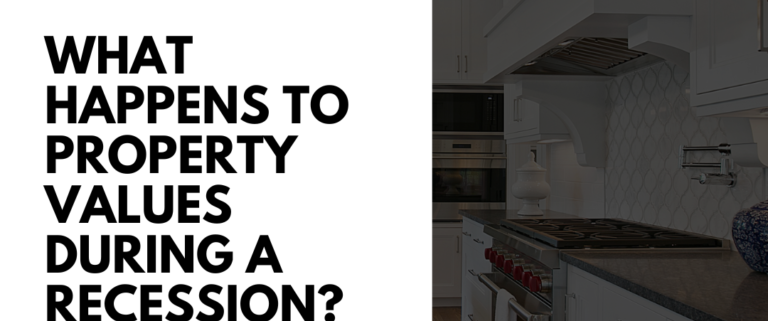What Happens to Property Values During a Recession?
A recession is defined as a period of time when there is a decrease in economic activity. This can be measured by a decrease in Gross Domestic Product (GDP), an increase in unemployment, or a decrease in housing prices.
During a recession, property values usually go down. This is because people lose their jobs and have less money to spend. Additionally, businesses may close down, which can lead to vacant properties. The decrease in demand for housing can also lead to a decrease in prices.
There are exceptions to this rule, however. For example, properties in areas that are growing in population or that are near amenities such as schools, hospitals, or parks, may actually increase in value during a recession.
To wrap things up, it’s important to know that a recession can have a negative impact on property values. However, there are some exceptions to this rule.
What is a recession?
A recession is a period of economic decline that is typically defined as a period of two or more consecutive quarters of negative economic growth, as measured by Gross Domestic Product.
During a recession, consumers receive less income, and spending decreases. This decrease in spending then affects businesses, which must then reduce their workforce, leading to higher unemployment rates.
As a result of this, there is also a decrease in demand for housing, and property values usually decrease.
What happens to property values during a recession?
During a recession, property values usually go down. This is because there is less money being exchanged and people have less money to spend. Additionally, businesses and companies may have to close down, leading to vacant properties. With fewer people buying homes, this leads to an overall decrease in demand for housing, resulting in lower property values.
Why do property values go down during a recession?
Once a recession is underway, people lose their jobs, thus resulting in less money being exchanged. This then translates to people having less money to spend, which then means fewer people are buying homes.
This decrease in demand leads to a decrease in prices, which then means that property values in that area go down. Furthermore, businesses may close down, leading to vacant properties, which can further decrease property values in the area.
Are there any exceptions to this rule?
Yes, there are some exceptions to this rule. For example, properties in areas that are growing in population or that are near amenities such as schools, hospitals, or parks, may actually increase in value during a recession.
This is because even though the overall economy may be in a state of decline, these properties may have a greater demand than others. Additionally, properties that are in desirable locations, such as waterfront locations, may also increase in value even during a recession.
To wrap things up
It is important to understand that property values usually decrease during a recession. However, there are some exceptions to this rule, such as properties in areas that are growing in population or near amenities. It is also important to note that even in a recession, the real estate market is still a good investment, as long as you’re aware of the risks involved.





